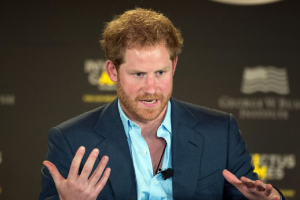The image of the two young Princes William and Harry following their mother’s funeral cortège remains a poignant and deeply moving memory. These children not only had to cope with the traumatic death of their beloved Mum, but they had to do it in the public eye.
Most of us could not comprehend what that must have been like as children or the impact it would have on us as adults. Now twenty years later Prince Harry has spoken openly and bravely of its affects on his mental health. His candid interview has already prompted new conversations about how we deal with mental health issues in childhood and adulthood.
I lost my father when I was only 20. I was just starting out in adult life, but my brother was still a small child, only nine years old. Remarkably, Prince Harry’s interview has prompted him to talk to his partner about the events of thirty years ago for the first time, and to reflect on the invaluable support he received from his primary school form teacher. He gave my brother the attention and care he was receiving at home but which he also needed at school as he came to terms with losing our Dad.
I suspect my brother isn’t alone in opening up about grief over this Easter weekend. Losing a parent, divorce, abuse or even low level anxiety and worries are childhood experiences many thousands of kids go through, and it’s essential that when children do go through the most difficult times that schools and teachers are there for them.
Rightly there has been a lot of focus on childhood obesity and physical health at school. But attention needs to be given to the mental welfare of kids too. I welcome the moves the Government has made towards putting children’s mental health on its policy agenda. All of us working with children know there is a huge amount that needs to be done to improve access to support, including specialist help. Research I carried out last year highlighted this – it found that nearly a third of children and young people referred for specialist mental health support were turned away.
But often it’s as simple as having someone to talk to. Most children suffering from anxiety want to know there is someone they can trust, who they can confide in. Sometimes they are scared or don’t want to make a fuss. Yet having someone there can make the difference between a child coming through a difficult time or falling further into unhappiness and ultimately depression. A school counsellor or nurse who is there to look out for the signs and support a child is invaluable.
As Children’s Commissioner, a major focus of my work this year will be to shine a light on mental health issues. We know from the children we have spoken to that we have a generation growing up anxious and worried about mental health, loneliness and self-esteem issues. Many are worried about the effects of their own parents’ mental health. I want to look at whether kids are receiving the support they need, and what are the factors that are contributing to an increase in anxiety. For example, is there a link between the use of social media and childhood depression?
I think we need to identify the scale of the problem and build up the resilience of children. If we don’t, we do risk leaving a mental health ticking-time bomb for future generations of adults. Schools should see this as a core part of the work they do – providing healthy futures for children.
That’s why Prince Harry’s intervention this weekend was such a positive and important development. Sadly it was often the case in the past that when a child went through a traumatic event they were simply expected to deal with it and sort it out themselves. In reality, this usually meant blocking things out. We’ve moved on since then, but probably not far enough. So when someone in the public eye, particularly a man, can open up and talk about dealing with grief, it makes a difference.
Harry has given a green light to talk. This is a great opportunity for Government and those working with children to make sure kids have the support they need. Let’s embrace it.






